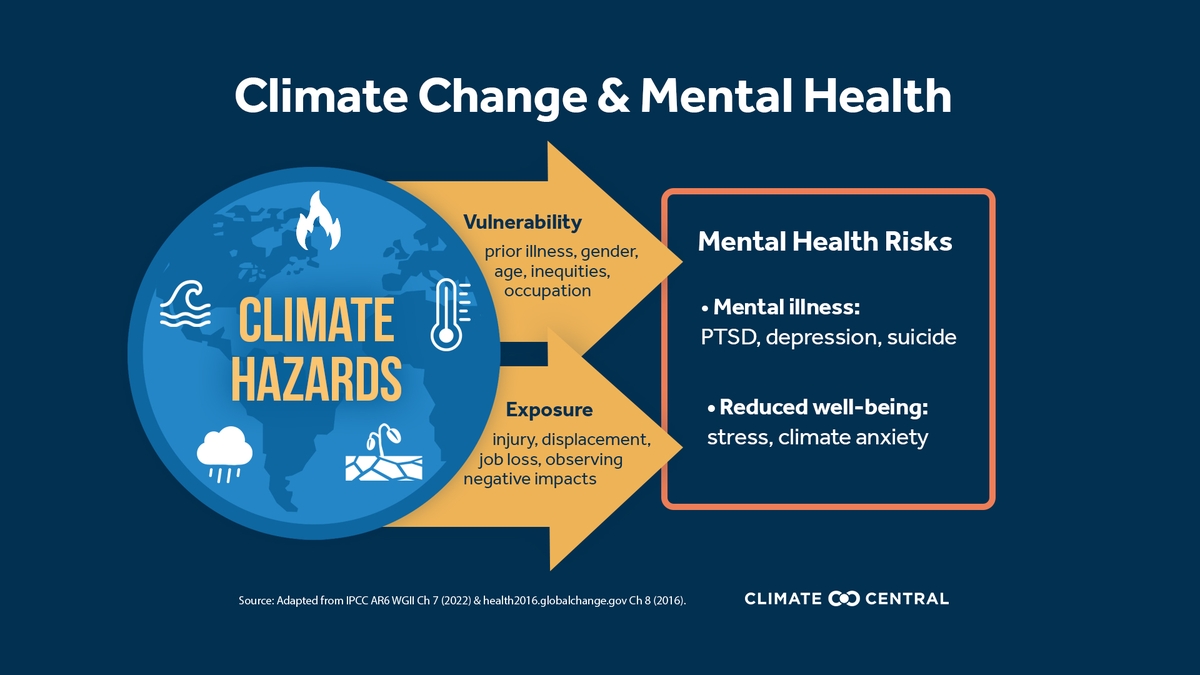
Climate change is a global crisis that poses significant threats to our physical world, but it also profoundly impacts our mental health. The escalating concerns about the environment are giving rise to a new form of distress known as climate anxiety. This unique form of anxiety is particularly prevalent among children and young people, causing significant disruptions to their daily lives and posing challenges for psychotherapists who are grappling with novel ways to address this issue.
Climate Anxiety: A Rising Concern
According to mental health experts, there is a rising number of patients experiencing high stress levels due to worries about global warming and its impacts. As psychotherapist Caroline Hickman points out, children are increasingly being treated for anxiety connected to climate change. The threat of extreme weather, the concerns about the future, and the perceived lack of action by those in power are some of the factors fueling this anxiety. These concerns are not only causing distress but are also shaping the life experiences of young people in the United States and around the world.
However, climate anxiety is not uniformly experienced. More than two-thirds of Americans are anxious about climate change, with younger people consistently experiencing the highest levels of anxiety. Marginalized groups, including Black, Indigenous, and other people of color, as well as women, low-income individuals, and gender nonconforming people, are more affected by environmental distress and injustice. It is important to note that this chronic stress can increase the risk of developing other disorders such as depression, anxiety, or substance abuse, especially among young people.
Climate Change: A Public Health Crisis
The climate crisis is not just an environmental issue; it is a public health emergency. It is anticipated to impact every aspect of health and well-being, leading to mental health struggles caused by numerous interacting stressors. The social ecological model, as presented in Psychology Today, clarifies that mental health and psychosocial struggles are the result of a myriad of factors, including individual, interpersonal, community, structural, and environmental aspects.
A public health approach to mental wellness and transformational resilience is required to help individuals engage in activities that strengthen their capacity to remain socially, psychologically, and emotionally healthy during adversities. This approach is particularly crucial considering the findings of a new study that reveals that children are at risk for developing mental health issues due to the changing climate, even if they’re not witnessing it directly.
Developing a New Playbook: Therapeutic Approaches to Climate Anxiety
Therapists are developing new approaches to help patients cope with climate anxiety, emphasizing the importance of collective action and finding ways to feel efficacious. They are focusing on connecting the fears of their patients to climate change and helping them understand that they are not alone in their worries. This collective understanding and action can provide a sense of comfort and control.
Another strategy is to help individuals cope with the emotional toll of environmental concerns. For instance, staying informed but setting limits on consuming distressing news, taking positive action, and connecting with like-minded individuals are some of the recommended strategies. An important part of this therapeutic approach is the recognition of the need for a new playbook in the counseling community to address the increasing demand for climate anxiety treatment.
Additionally, there are recommendations for minimizing harm to our people and planet. These include transitioning to renewable sources of energy, implementing inclusive climate programs and policies, integrating climate education into curricula, and healthcare practices to identify and resolve climate-related distress.
In conclusion, climate anxiety is a pressing issue that is reshaping our understanding of mental health. It calls for innovative therapeutic approaches and robust public health strategies. By recognizing the profound impact of the climate crisis on mental health, we can better equip ourselves and future generations to navigate the challenges of our changing world.
